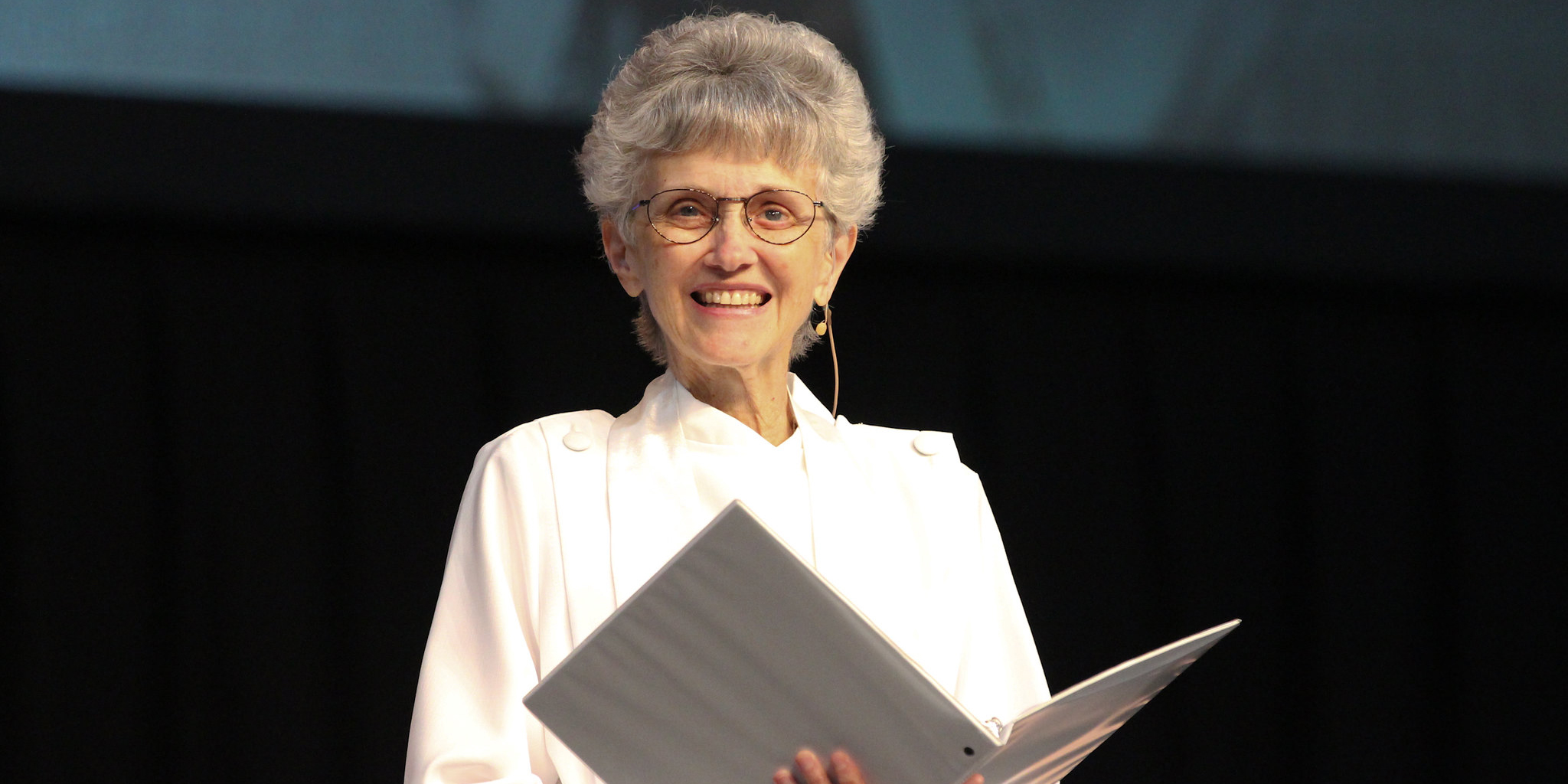
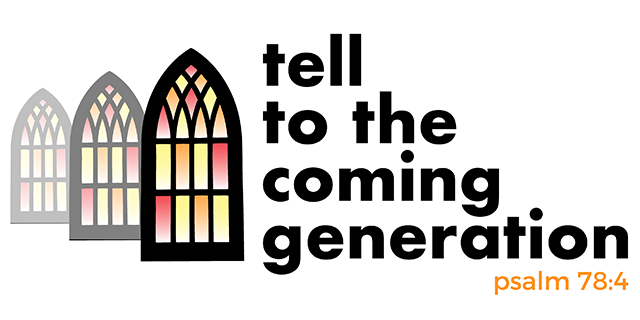
By Bishop Peggy A. Johnson
The theme of this year’s Annual Conference was “Tell to the Coming Generation.” Indeed, we were treated to a wonderful array of speakers from the younger generation. They challenged us to reach beyond the walls of the church to engage young people with genuine relationship-building, social justice and mission.
We celebrated our clergy retirees, ordained and commissioned our new elders and deacons, and respectfully remembered our departed ones who joined the Church Triumphant. There was also the usual business of budgeting, nominations and many reports of our magnificent missions and outreach ministries.
No conference I believe has done more for the “Call to Action” (Northeastern Jurisdiction anti-racism initiative) to confront our racism than Eastern PA; and yet, we can see from the reporting there is still much to be done in this area. We continue to struggle with full inclusivity.
There is also much work to be done in our unity in Christ. Front and center at Annual Conference was the election of delegates to the 2020 General and Jurisdictional conferences. These gatherings will likely steer the future of the denomination for many years to come. So the stakes are high.
We have been in a systemic whirlwind of controversy about the ordination and marriage of homosexual people for more than 40 years. But after the 2019 Special General Conference, in which the traditional prohibitions were maintained with added enforcement, the anxiety has increased.
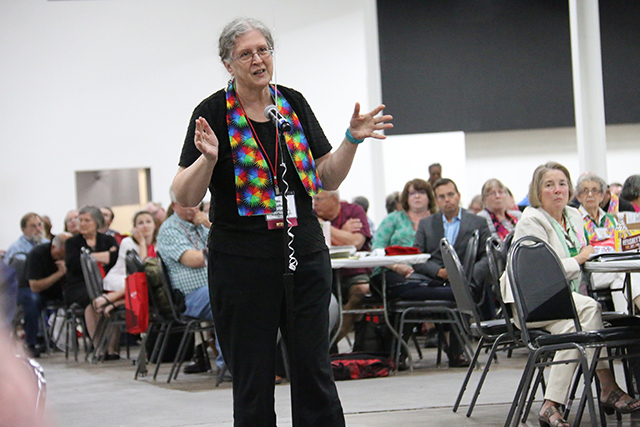
Progressive hearts and particularly members of the LGBTQIA+ community were deeply hurt by this decision. Our connection has been full of anxiety ever since that February special session. I publicly apologize to those who have been hurt as a result of the decisions made there.
People on both the traditional and progressive sides of the house at Annual Conference were invested in seeing that delegates from their points of view were elected. Once again, the old well-practiced struggle could be seen throughout the election process. From yellow cards with names of “who to vote for,” to rainbow-stole-wearing members singing outside the hall before the ordination service, to hot debate over Resolution #2019-13 (an aspirational call for us to be a “One Church Plan” conference with centrist to progressive leanings), the familiar impasse was evident.
This was my 11th Eastern PA Annual Conference, and there has never been a session without a debate about homosexuality and an enormous amount of pain afterwards, with both “winners” and “losers.” When will we learn that we cannot legislate the hearts of people? When can we begin to live in such a way that all can “win?”
Richard Rohr, a Franciscan priest and contemporary Christian writer, observed: “Churches have primarily trained people in simplistic choosing of one idealized alternative while denigrating the other. This has gotten us nowhere.” (“Richard Rohr’s Daily Meditation” from the Center for Action and Contemplation, July 9, 2019). I could not agree more. We are deeply divided and seemingly unable to see how much we need each other, especially those with whom we disagree, to be the full Body of Christ.
Following Annual Conference I have received numerous letters and engaged in many conversations about the results of the session: the way it was led, scheduled and voted. I am responding to some of the concerns here:
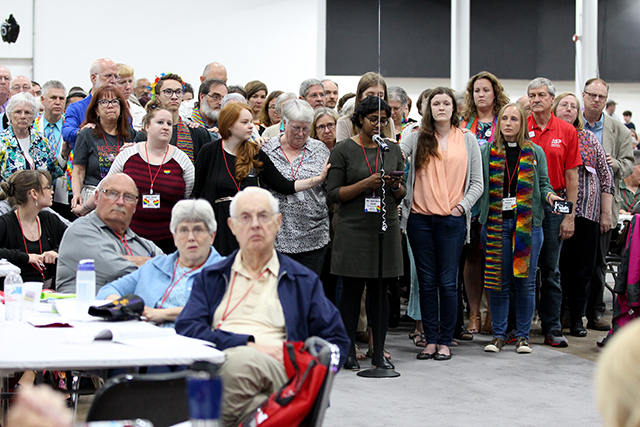
1) “The waving of rainbow pompoms in protest and the amassing of people behind one speaker at the microphone created an atmosphere of intimidation.”
My response: I have witnessed these signs and symbols at General Conference since I first attended in 1996. Demonstrations with rainbow stoles and apparel have never been outlawed by the denomination or the EPA Annual Conference. The act of witness before the ordination service, characterized as a “protest” by some, has happened every year since I have been the bishop here and likely before. I attended part of it this year, and it consisted of prayer, praise, testimony and song.
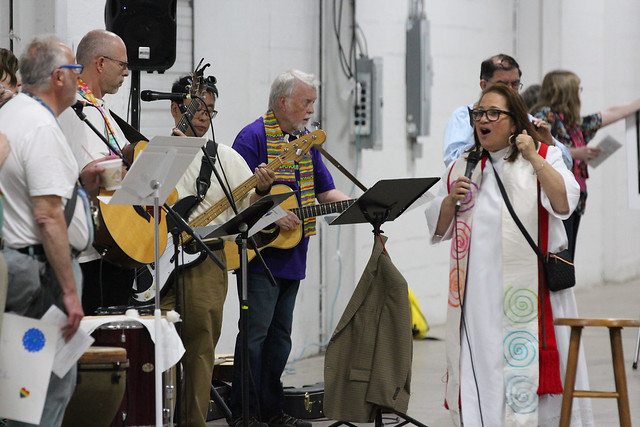
I spoke with the leadership of this event prior to Annual Conference and felt that this was in keeping with our agreement about the deportment. Rules could be added to the Conference Rules of Order next year that could perhaps address this kind of thing. Any rule would need to pass by a two-thirds majority. However, I believe making rules should always be a last resort. They are an easy “technical” fix for a larger, interpersonally deeper challenge.
A better option would be for people to engage those who offended them in a Christian conversation about their different perspectives from the heart. This is the harder path but always the best one. Have we given up on each other?
2) “The voting for Lay Equalizing Delegates at the district conferences allowed one church to send multiple delegates and one delegate had only been a member for one week.”
My response: The person who had only been a member for one week did not serve as a voting equalizing member. District Conferences vote for these additional lay people; and if no one else is running at the time of election, then those who are running are duly elected. Concerned people need to put their names up for election in the future. Again, rules could be created that would specify how many equalizing members each church can have. It would be better if people take initiative to raise up other nominees instead.
3) Resolution 2019-13 (the “aspirational” resolution that called for EPA to go on record as being a “One Church Plan Conference.”) passed after a long debate, including an attempted substitute motion, and a call for postponement. The expressed concern is that this resolution calls for the conference to “behave as though the actions of the Special General Conference (which require us to maintain the prohibitions against homosexual ordination and marriage with enforcements) have been superseded by this more progressive plan.
My response: Aspirational resolutions are in order with the understanding that the official rulings of the Book of Discipline will still be maintained. Numerous resolutions have passed through the years on a variety of topics across the connection. Such a resolution does not call anyone to give loyalty to it. It serves as more of a test of where the house stands on a particular issue.
Christians of “goodwill” throughout the history of Methodism have debated many social issues, such as slavery, women in pastoral ministry, civil rights, the death penalty, military service in war, immigration, indigenous peoples’ rights, alcohol consumption, etc. They have done so with great passion. And still they manage to agree in Christ, knowing that Christ is the source of our unity. Unity is our best witness. That is my prayer throughout this current debate as well.
Our Conference Chancellor has submitted the paperwork to the Judicial Council asking for a ruling, as requested, on the legitimacy of this aspirational resolution (#2019-13). We will not know their decision for several months or even if they will review it at all, since the court has approved similar aspirational resolutions many times in the past.
4) Putting Resolution #2019-13 on the last day’s agenda, when fewer people were in attendance, seemed to be a strategy to leave out the voices of the full body.
My Response: I appreciate this concern, and I will try to do better in the future, since it appears to be a source of hurtful frustration for some. Clergy and lay members are asked to be at all sessions of Annual Conference; but in reality, that is difficult for some. Challenging resolutions of a social justice nature do require a large block of time for debate, and “Orders of the Day,” such as our special services and guest speakers, must be honored. In that case, some debate would need to be suspended and brought back later.
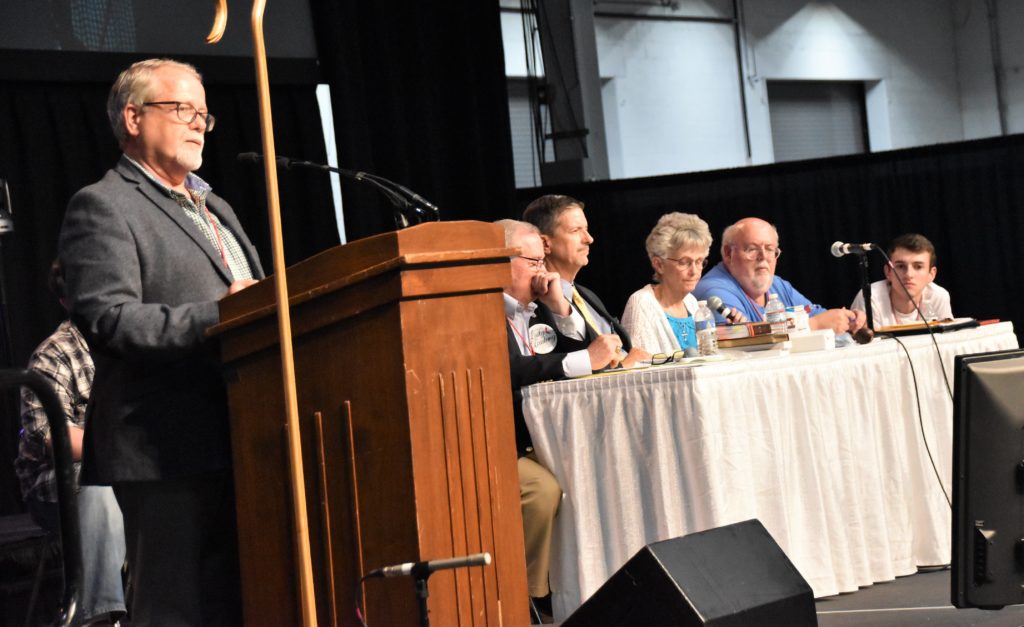
Scheduling and adjusting our conference agenda is a complex process with many variables, some of which I have little or no control over. Also, I think all would agree that front-loading a conference with a conflictual topic is hardly a positive way to set a tone for holy conferencing.
5) “Why didn’t we use the electronic voting devices for the resolutions, since we already paid for them for the election of delegates?”
My Response: Only some clergy eligible to vote for General and Jurisdictional delegates were issued voting devices as per the rules of the Book of Discipline. If we were to have used the voting devices for a resolution vote we would have needed to take the time to issue additional voting devices, and we did not rent that many of the expensive devices in the first place.
I called for a standing vote when the votes were close, and it took additional time; but I felt that it was necessary to insure total transparency. The body can call for a written ballot vote for more of a sense of privacy. But that would need to be requested and the rules set aside by a two/thirds vote before it can be considered and approved by the body.
6) “There needs to be a public apology to the two young adults who were candidates for election as delegates to General and Jurisdictional Conference. Some conference members questioned their legitimacy, since they were given prominent speaking opportunities during the session of annual conference.”
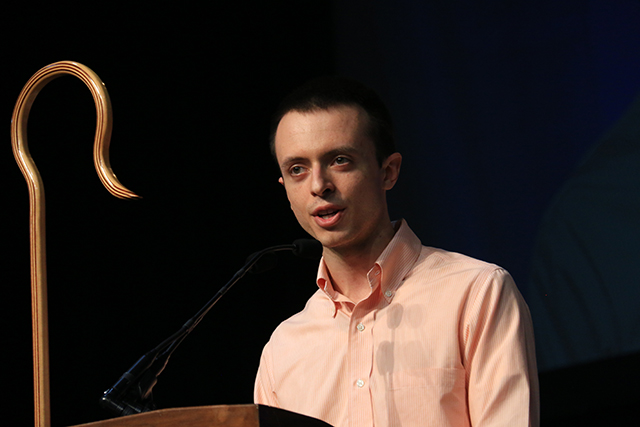
My response: There is no official rule in the conference journal that prohibits people who are running for election from also accepting prominent speaking engagements at annual conference. Since the theme of this year’s Annual Conference was all about the younger generation it was going to happen that some of our own young adults would be asked to speak. Their invitation to speak was not in any way a strategy to get them elected by the Commission on Sessions.
The larger issue was a suggestion by some that the call for their disqualification had more to do with their theological perspective than their visibility on the stage. Some questioned if there were rules about this from the floor.
As the presiding officer I do not make decisions for the body but it is my role to enable the body to do its work. When it was suggested that the two young people be disqualified or that the other lay people running for election get a chance to speak for two minutes to make it more fair, the body handled this by voting it down.
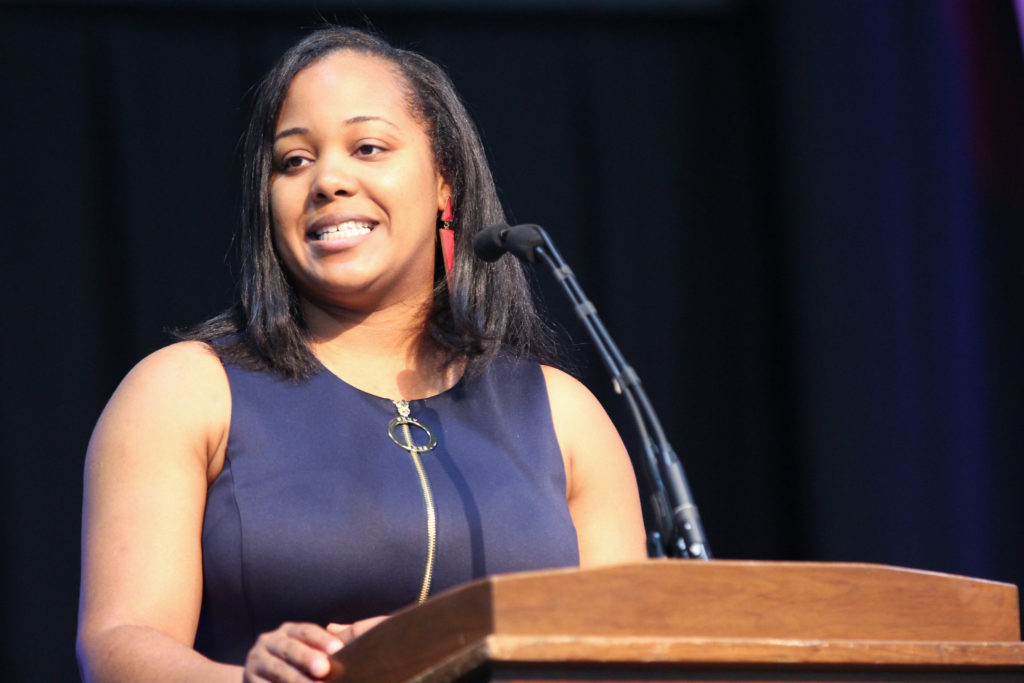
I personally spoke to both of the two young people following the conference and asked if they wanted an apology. Initially, they both said no and that they would just move on. After further consideration they have requested a public apology for the good of future elections. I agree that it is important that this does not happen again.
I publicly apologize for the embarrassment and negativity that these two young adults experienced at Annual Conference. They did not agree to speak at Annual Conference for the purpose of positioning themselves to become elected delegates to the General and Jurisdictional conferences. Nor is there any prohibition against such a speaking opportunity if one is running for election.
No rules were broken; no concern needs to be raised if this happens in the future. It is regrettable that following the conversation on the floor about this issue these two young people experienced negative feedback and social media harassment that politicized this moment.
We are living in anxious times; so we need to exercise the highest level of restraint and compassion when questioning the actions of our brothers and sisters. Always ask yourself: Is it true? Is it necessary? Is it kind? These are good rules to live by always.
